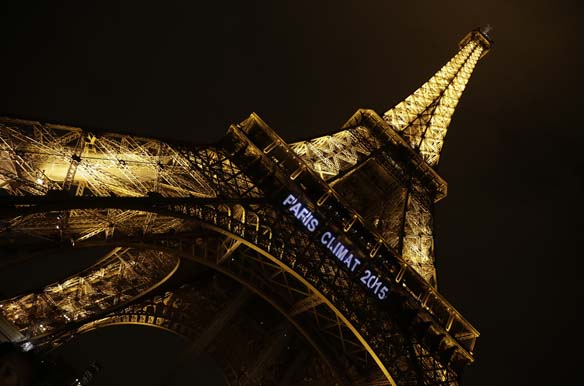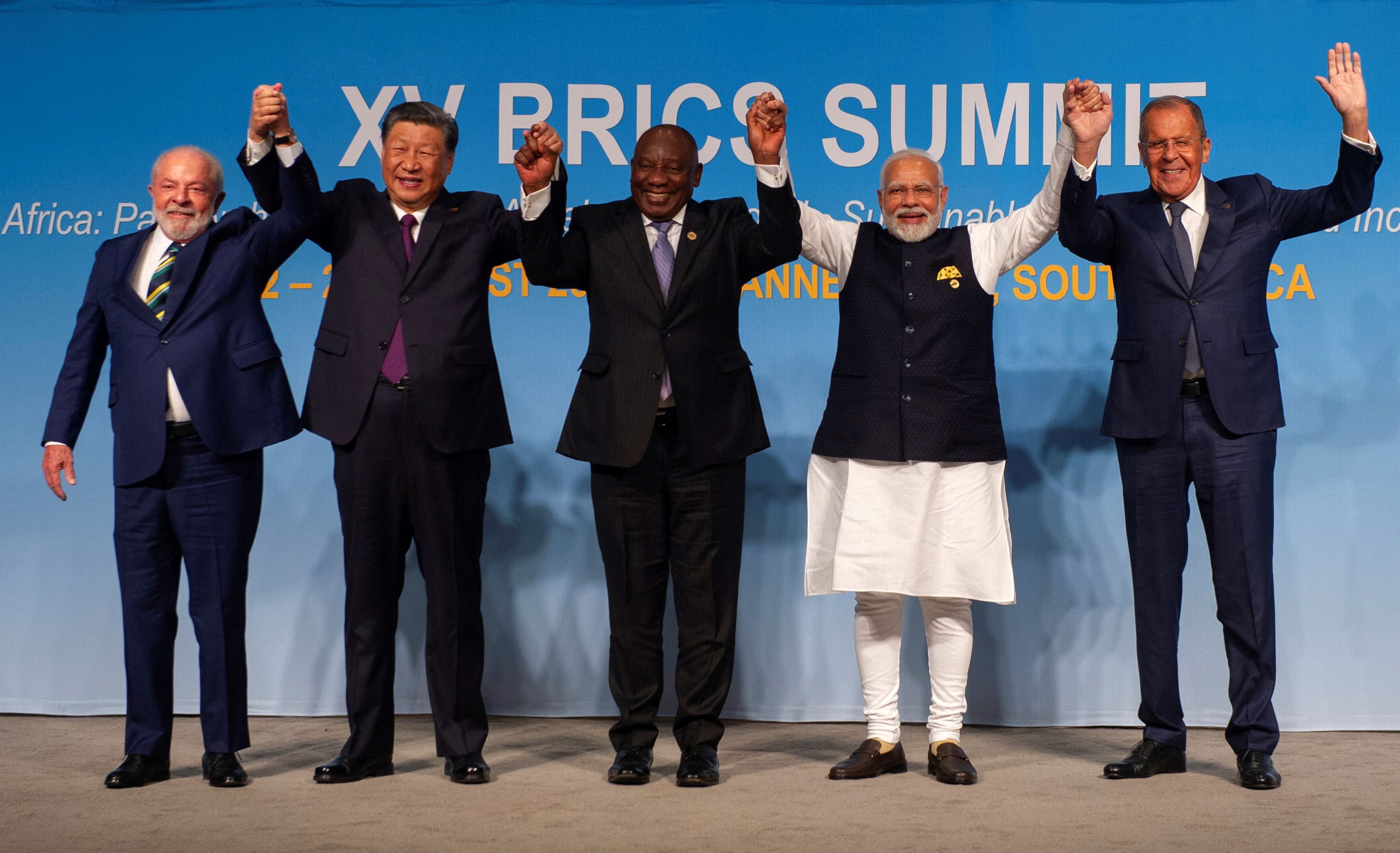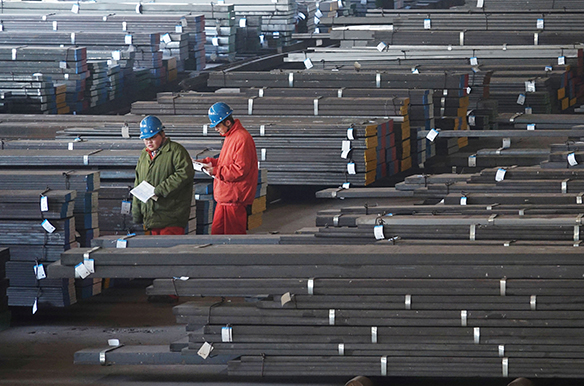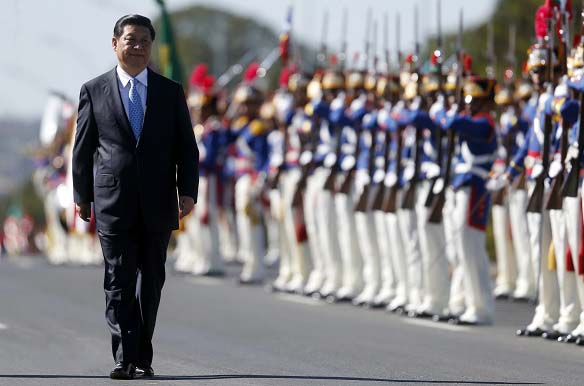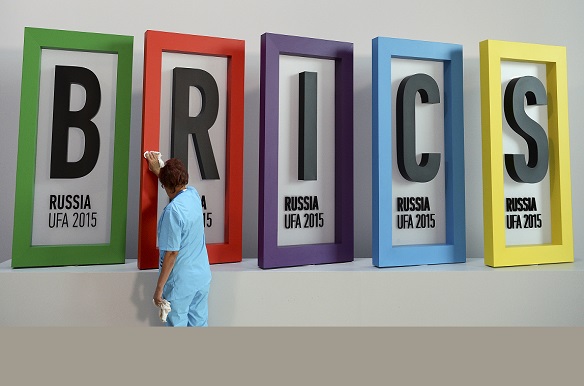AN INITIATIVE OF THE COUNCIL ON FOREIGN RELATIONS connecting leading global foreign policy institutes
End of the Illusion: EU Partnership Holds Firm Despite India’s Stance on Russian Aggression
Having Tested its ASAT Capability, India Should Help Shape Global Space Norms
This argues that after its anti-satellite missile test, India should now enter into conversations with other space powers to establish space norms and ensure that space remains weapons-free.
The Tricky Path to a Global Climate Agreement
The Conference of Parties (COP 20) of the United Nations Framework Convention on Climate Change (UNFCCC) will convene a critical session in Lima December 1–12. It precedes COP 21, to be held in Paris in December 2015, at which a post-Kyoto global agreement (post 2020) on climate change must be finalized, in accordance with the Durban Platform for Enhanced Action. The outline of the Paris agreement is expected to begin to take shape in Lima. This agreement will determine the ambition and contours of the global response to climate change in the years ahead.
The Conference of Parties (COP 20) of the United Nations Framework Convention on Climate Change (UNFCCC) will convene a critical session in Lima December 1–12. It precedes COP 21, to be held in Paris in December 2015, at which a post-Kyoto global agreement (post 2020) on climate change must be finalized, in accordance with the Durban Platform for Enhanced Action. The outline of the Paris agreement is expected to begin to take shape in Lima. This agreement will determine the ambition and contours of the global response to climate change in the years ahead.
Global Summits in 2023: A Test for the Rise of the Rest?
The world is enduring the most complex and interdependent set of challenges in recent memory, and global summits continue to play an indispensable role in driving and coordinating commitments to govern an unruly world. Even when summits are heavily scripted, they give leaders a rare opportunity for face-to-face discussions—something sorely missed during COVID-19—which can strengthen relationships and increase mutual understanding.
The world is enduring the most complex and interdependent set of challenges in recent memory, and global summits continue to play an indispensable role in driving and coordinating commitments to govern an unruly world. Even when summits are heavily scripted, they give leaders a rare opportunity for face-to-face discussions—something sorely missed during COVID-19—which can strengthen relationships and increase mutual understanding.
The BRICS Summit 2023: Seeking an Alternate World Order?
The BRICS (Brazil, Russia, India, China, and South Africa) bloc met for its annual leader’s summit in Johannesburg, South Africa on August 22–24, 2023. The highlight of the fifteenth summit was the agreement to admit six new member countries: Argentina, Egypt, Ethiopia, Iran, Saudi Arabia, United Arab Emirates, who will officially join the group in January 2024. Ten Council of Councils (CoC) experts from BRICS members and beyond reflect on the future of the grouping and what expansion means for global governance.
The BRICS (Brazil, Russia, India, China, and South Africa) bloc met for its annual leader’s summit in Johannesburg, South Africa on August 22–24, 2023. The highlight of the fifteenth summit was the agreement to admit six new member countries: Argentina, Egypt, Ethiopia, Iran, Saudi Arabia, United Arab Emirates, who will officially join the group in January 2024. Ten Council of Councils (CoC) experts from BRICS members and beyond reflect on the future of the grouping and what expansion means for global governance.
The Asia-Pacific’s Response to Rising U.S. Protectionism
U.S. President Donald J. Trump has taken a radically different approach to trade than his predecessors and calls for protectionism have increased in the United States. Trump has launched a series of unilateral moves based on the belief that international trade is a zero-sum game in which the preceding U.S. administrations’ “disastrous” policies disadvantaged American workers and companies.
U.S. President Donald J. Trump has taken a radically different approach to trade than his predecessors and calls for protectionism have increased in the United States. Trump has launched a series of unilateral moves based on the belief that international trade is a zero-sum game in which the preceding U.S. administrations’ “disastrous” policies disadvantaged American workers and companies.
January 13, 2015
Click to watch the event: http://www.cfr.org/global/crisis-global-governance/p35938
The first Council of Councils (CoC) public event, "Crisis in Global Governance," live from the CoC Seventh Regional Conference in New Delhi, India, on January 13, 2015, at 9 a.m. (EST).
Click to watch the event: http://www.cfr.org/global/crisis-global-governance/p35938
The first Council of Councils (CoC) public event, "Crisis in Global Governance," live from the CoC Seventh Regional Conference in New Delhi, India, on January 13, 2015, at 9 a.m. (EST).
A Chinese Perspective on the BRICS in 2015
Thanks to the power shift in the international system and the deepening cooperation of the BRICS countries (Brazil, Russia, India, China, and South Africa) in the past six years, the role of this group in global affairs continues to gain momentum. The BRICS group is not only an economic concept but increasingly it is also taking the form of a political entity. However, with the slowing economic growth in BRICS countries and changing geopolitical dynamics around the world, the role of the BRICS on global governance is facing greater challenges than before.
Thanks to the power shift in the international system and the deepening cooperation of the BRICS countries (Brazil, Russia, India, China, and South Africa) in the past six years, the role of this group in global affairs continues to gain momentum. The BRICS group is not only an economic concept but increasingly it is also taking the form of a political entity. However, with the slowing economic growth in BRICS countries and changing geopolitical dynamics around the world, the role of the BRICS on global governance is facing greater challenges than before.
Russia and the BRICS: Priorities of the Presidency
On July 8–9, Russian President Vladimir Putin will host the heads of Brazil, India, China, and South Africa at the seventh BRICS summit, in Ufa. Russia’s presidency of the BRICS, which began in May 2015, aims to pursue the following five priorities: strengthen international peace and security, facilitate multilateral financial cooperation and reform the international financial system, enhance trade and economic cooperation, expand social cooperation of the BRICS countries, deepen humanitarian interaction.
On July 8–9, Russian President Vladimir Putin will host the heads of Brazil, India, China, and South Africa at the seventh BRICS summit, in Ufa. Russia’s presidency of the BRICS, which began in May 2015, aims to pursue the following five priorities: strengthen international peace and security, facilitate multilateral financial cooperation and reform the international financial system, enhance trade and economic cooperation, expand social cooperation of the BRICS countries, deepen humanitarian interaction.

